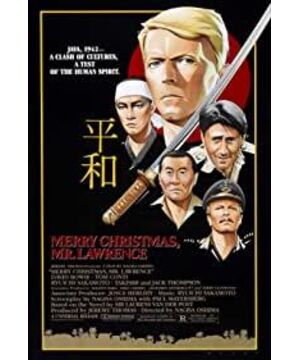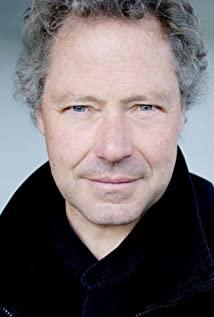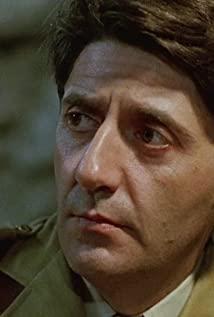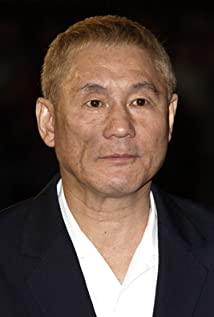It took a long time to watch this movie with a more famous soundtrack - the theme song of the same name composed by Ryuichi Sakamoto, one of the leading actors, with a rather oriental rhythm as the background, and the cello concerto, which Sakamoto is good at, In different versions, human voices are added to sing in a low voice, and a sad song plays out the helplessness of movie characters in current events and situations, and it has become a classic.
Before watching the movie, I always thought that David Bowie played the Mr. Lawrence mentioned in the title, but the truth is the exact opposite - the character who repeatedly said the line "Merry Christmas Mr. Lawrence", and Mr. Lawrence. We are the bystanders of this "silent love", just like we are watching this movie.
Emotions in the barracks
The film is escorted by the rough Takeshi Kitano to watch Lawrence to watch a death sentence. The dim sky hints at the inhuman brutality of the Japanese soldiers. Through a walk through the tropical rain forest, it not only explains the opening subtitles but also informs the background of the story—— A Japanese POW camp in Java before the end of World War II.
The dead walker to be executed was a Japanese soldier who had a relationship with a prisoner of war. Homosexuality was shameless and unavoidable at the time. The Japanese military represented by Takeshi Kitano took this as a laughing stock and made fun of it. The soldiers later made him cut himself to death. Lawrence, whose thinking is more civilized and modern, excuses the two, "In war, there are usually some emotions that go beyond friendship between men. This is a normal thing." This sentence established the theme of the entire film.
Ryuichi Sakamoto & David Bowie
Among the four protagonists, I believe that most people's attention is more likely to be attracted by the handsome Sakamoto Ryuichi and David Bowie. Relatively speaking, these two characters are also more attractive - they are not only excellent in appearance, compared to Characters with the same identity as them are more literate and moral (just relative, after all, Sakamoto was also insane in the later period).
As the highest-ranking commander in this prisoner of war camp, Sakamoto stopped Takeshi Kitano's rude behavior as soon as he appeared on the scene. Later, he also showed great respect for Lawrence and other prisoners of war. He was well educated and used all dialogues with the British. English (even Lawrence is proficient in Japanese), coupled with his handsome face (proud and petite mouth that always pouts), it is inevitable that people will not like him greatly. David Bowie's character has dazzling blond hair and a unique dark green military uniform. The large close-up of multiple eyes is enough to show his unruly beauty, not to mention that there is a reluctance to bow his head under such a beautiful appearance. stubbornness.
From their first meeting in court to Bowie being brought to prisoner of war nutrition, we can clearly see that Sakamoto was gradually attracted by Bowie and slowly fell in love. "Love at first sight" may not be appropriate, I prefer it to be a kind of "sympathy". The brilliance of the British officer (who surrendered in humiliation for the safety of the people) and bravery attracted him so much that he wanted to make a living for Bowie. Although due to his identity, he could not act beyond his duties, but when we waited for death with Bowie again and again with the camera, it was Sakamoto's silent efforts (of course we all know that Bowie does not Can easily get a lunch) - delaying the death penalty, being rescued on the execution ground, late-night visits, merciful forbearance, and even provoke the unauthorized murder of soldiers out of patronage, claiming that Bowie is "the devil that disturbs Sakamoto." His love may be silent, but not invisible.
Bowie's attitude towards this relationship has always been vague - he knows that this person is good to him, but his stubbornness makes him do things that resist the enemy time and time again. Only in being tortured and tortured can he feel a trace of redemption. The reasoning behind it is not made clear until the second half through a flashback - the relief he seeks from the self-blame of failing to protect his younger brother.
There is a very unforgettable scene in the movie. Under the moonlight, Bowie took advantage of killing the soldiers who attacked and escaped from prison. He fled with the injured Lawrence, and ran into Sakamoto head-on. The dramatic background music played suddenly, until At this moment, Bowie's attitude towards Sakamoto was positively described - when the two faced off with knives, Bowie chose to stick the knife in the sand beside him, and Sakamoto was slightly surprised and angry: "Why don't you fight me? If you If you win, you will be free!" Bowie smiled and didn't answer, the camera stopped for a few seconds with the knife on the side, instead of Bowie's answer - he didn't want to hurt him.
For Bowie, Sakamoto, who is kind to him, is also a unique existence in the military camp-the unique emotion that can be perceived in the battlefield between life and death is probably love. The army that arrived "just in time" interrupted the silence (the countless moments that required Sakamoto to face up to this relationship were "smartly" interrupted by the army, and Sakamoto's feelings were buried deep in his heart from beginning to end, and he never got any outlet. Bravely expressed, this is also the embodiment of his love so silent) Lawrence whispered in Bowie's ear: "I think he likes you a little bit." Bowie lowered his head, unable to see whether he was happy or agreed.
The film climaxes in a gathering of prisoners of war ordered by Sakamoto - Sakamoto seems to want to prove his majesty, dragging sick prisoners of war to the battlefield, resulting in the death of a patient, the death intensified the contradiction between the two sides, in Sakamoto Posing to kill the British general, Bowie walked across the army towards Sakamoto, he pulled him closer, kissed twice on both sides of his cheek, and Sakamoto nearly disarmed and collapsed. It may not be easy to have an accurate explanation for this series of actions, because there are too many emotions in it - Bowie's coming forward is not only self-salvation for his brother's debt, but may also influence Sakamoto (even relying on reliance on it). Sakamoto's love for himself), expressing his own emotions and other meanings, Sakamoto was shocked under such public eyes, and his body stiffened and did nothing.
In the end, Bowie was executed by a more senior Japanese general - buried alive in sand, and when he was dying, he finally felt that he had been forgiven by his younger brother; Sakamoto came to cut off his blond hair at the last moment as a final memorial Safekeeping. All this is sacred like a ceremony, but it is full of unspeakable hardships.
Former Sergeant & Mr Lawrence
Time came after the war, Sakamoto had already been executed, and the camera came to Kitano Takeshi and Lawrence. As bystanders of this "forbidden love", these two have been guiding the audience to pay attention silently, intentionally or unintentionally. In the film, Lawrence passed the needle to convey each other's love to the two many times, including Takeshi Kitano who came to Lawrence to "gossip" at night, and happened to bump into Sakamoto's visit at night. These two are the entrances that the director set for the audience to substitute emotions, and The two of them are not just a window. The indescribable friendship between them is actually an emotional line implied in the film.
The black-haired Lawrence speaks fluent Japanese. He is interested in Japanese culture, but he also sighs when Kitano Takeshi raised his samurai sword: "The Japan in my impression is not like this." He yearned for the romance in Sakamoto's mouth. The cherry blossoms are flying, representing that Lawrence of modern civilization is gentle and rational.
However, he established a deep friendship with Takeshi Kitano, who seemed to have a completely different personality. He said to other prisoners of war: "Sergeant Yuan (Take Kitano) is a good person, he will not kill people indiscriminately." He saw through his heart, Willing to get up late at night to accommodate Kitano Takeshi's disturbance, watching him drunk on Christmas Eve laughing. This seemingly murderous "enemy" is sometimes cute and cute.
On Christmas Eve, a day in the West where families should be reunited, Takeshi Kitano was drunk and expressed his most Akagi's heart. He said the film's highlight line "Merry Christmas, Mr. Lawrence", which was the only English he knew at the time. Reunited after many years, he learned some English in prison, but also said goodbye to his close friends with the phrase "Merry Christmas, Mr. Lawrence" - just remember the friendship between us, nothing else matters .
music & love
Although the film is immature in some performances and editing (after all, there are some non-professional actors), the soundtrack is very good to help, all thanks to the great Ryuichi Sakamoto. At this time, listen to the theme song again (the symphony version sounds richer and more mournful) - slowly and secretly, the beautiful beginning, with the addition of instruments with oriental charm, the music becomes more oriental and mysterious, and the emotions become complex Diversity, with repeated repetitions, the rhythm gradually accelerates, and the emotions usher in a climax in the powerful trumpet sound, and everything comes to an abrupt end, as if nothing had happened.
As an anti-war film, love, as a kind of emotion, occupies the main part of the film. It may not be spoken out of the actor's mouth, but it is conveyed to the hearts of every listener with music. This real impact is the shape of music, and it is also the shape of love.
At last
The New Year's goal set with the little emperor is 12 movie reviews, and I hope to continue it well~ Come on!
View more about Merry Christmas Mr. Lawrence reviews











